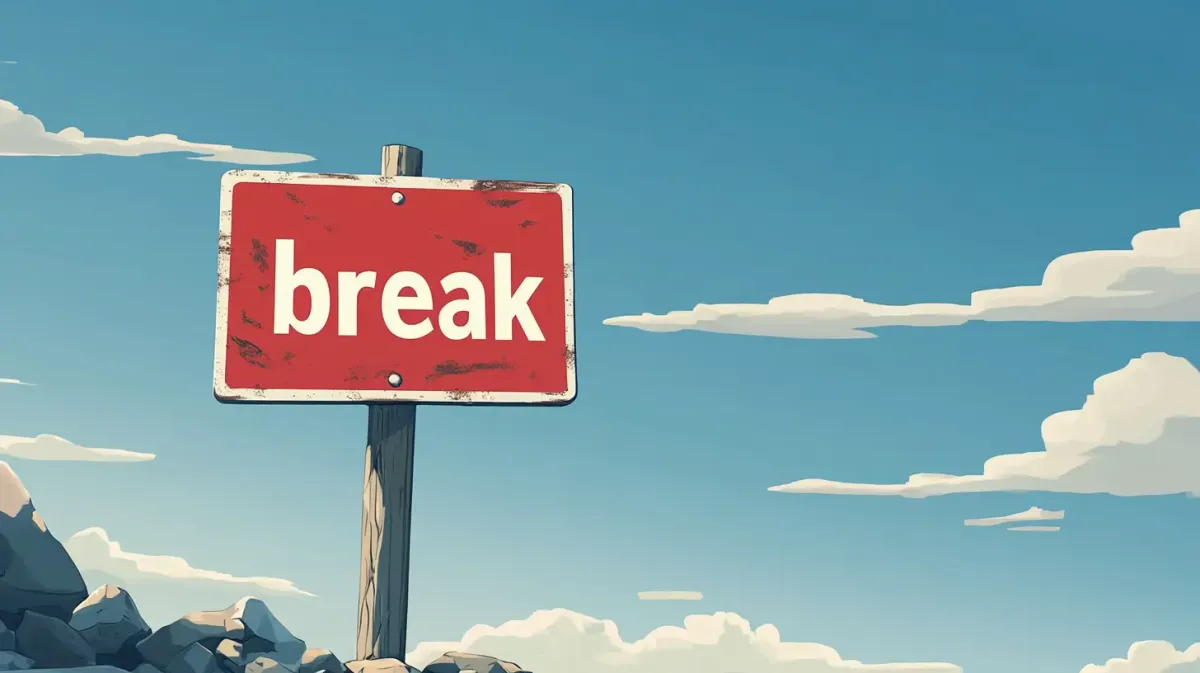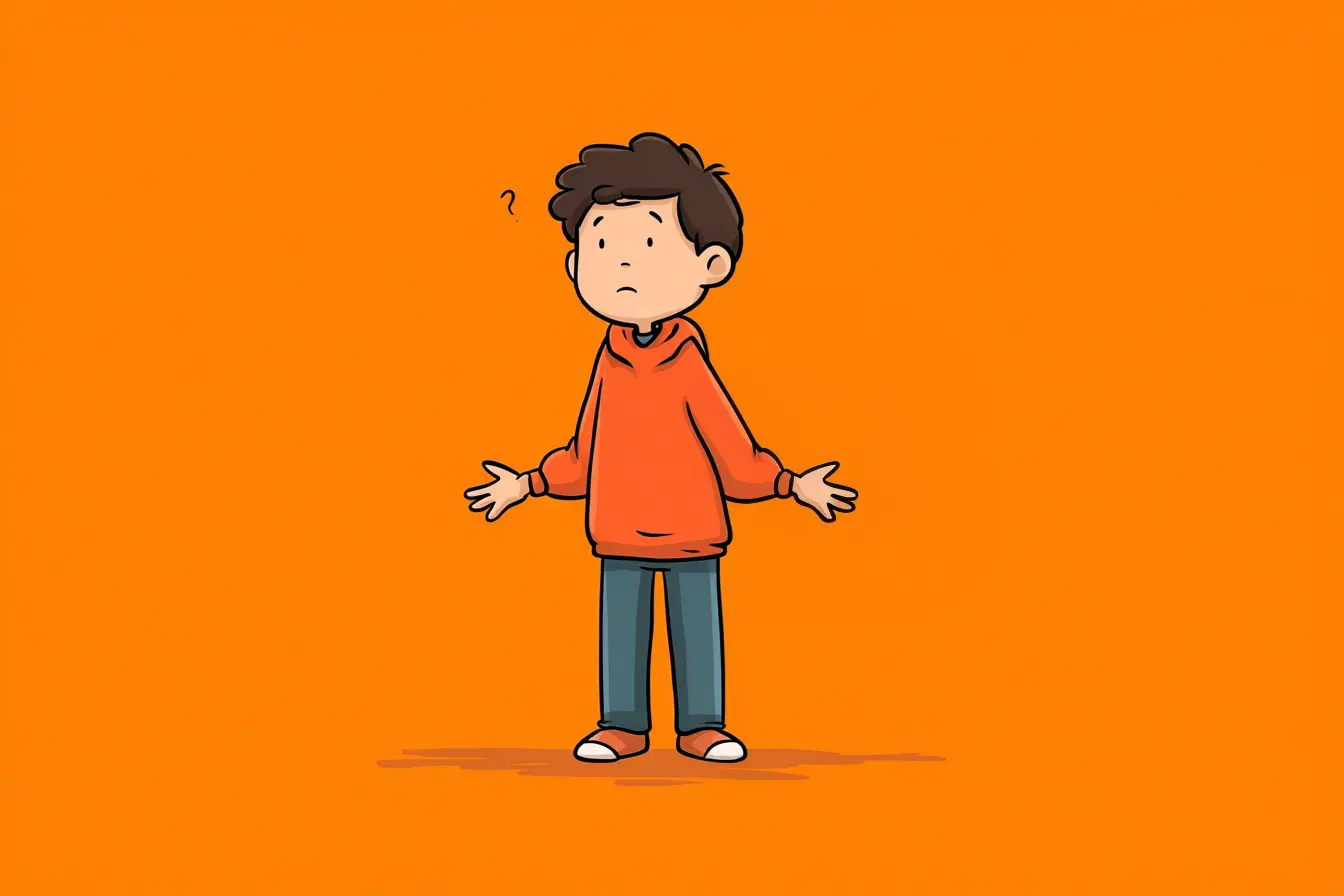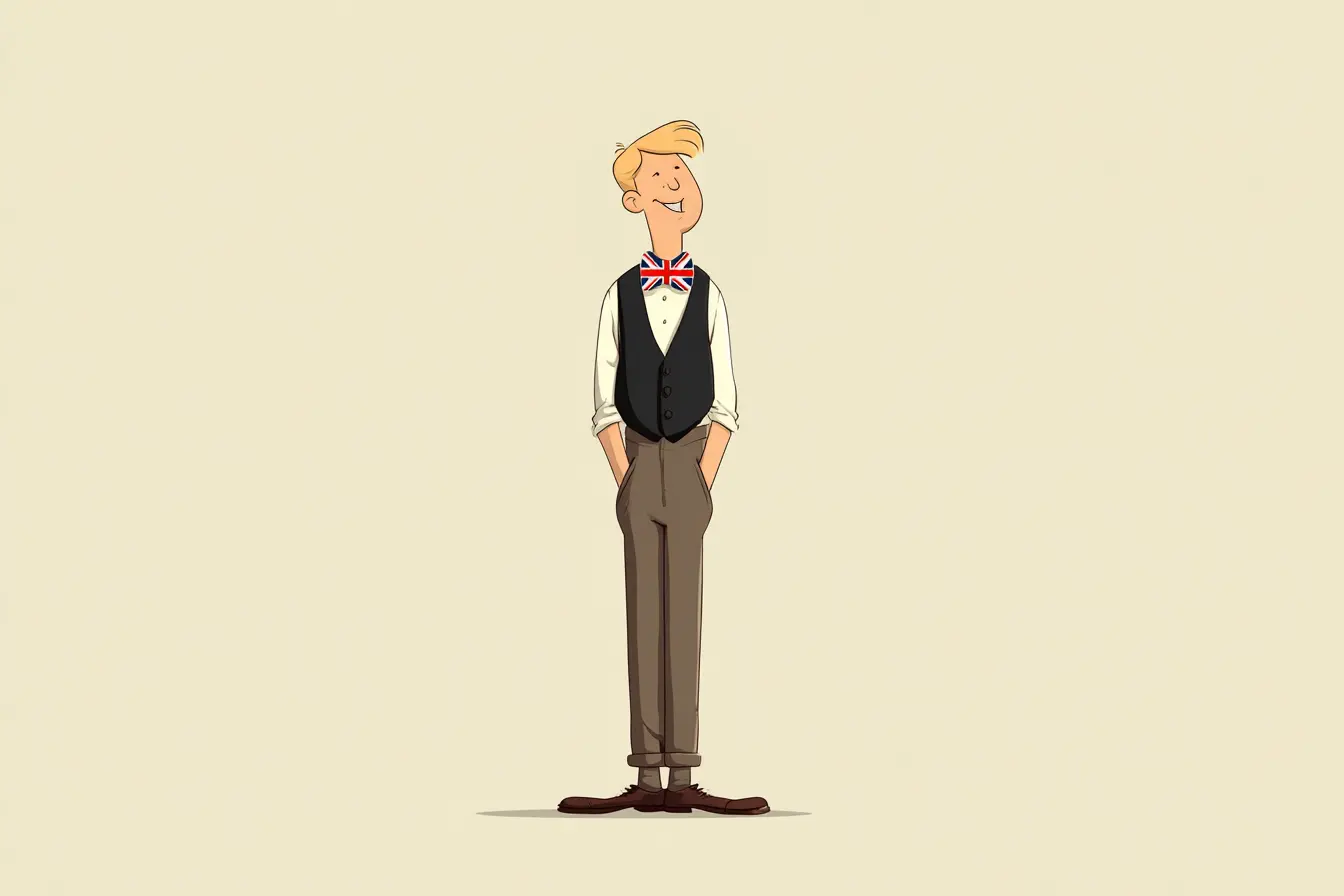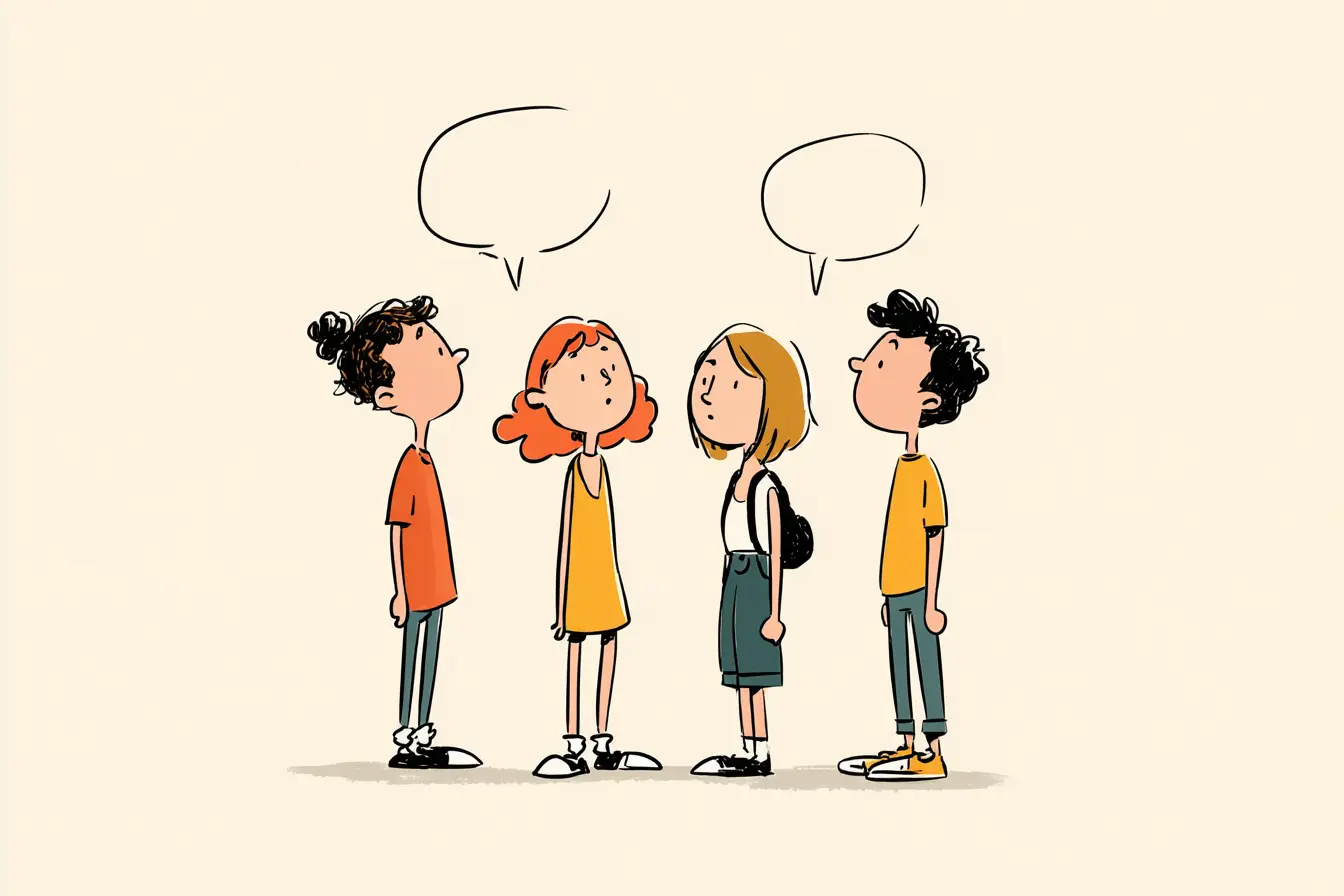“Break” is one of those chameleon verbs that changes color every time you add a preposition. It can mean freedom, failure, emotional collapse, sudden success — or even romantic drama. Mastering phrasal verbs with “break” gives your English more depth and emotional punch.
Below you’ll find the most common and useful phrasal verbs with “break,” along with real, full-context quotes from public domain books, so you can feel how they’re used in real stories — not just isolated textbook examples. And if you are interested in other phrasal verbs too, take a look at this article.
Quick Reference Table of Phrasal Verbs With 'Break'
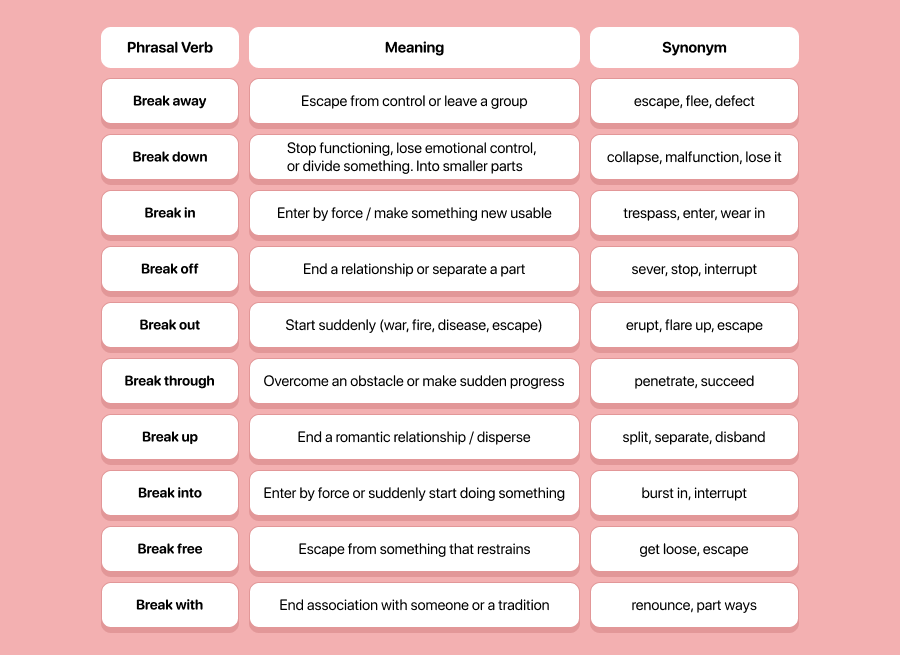
1. Break Away
To break away means to escape from physical or metaphorical control — to cut loose.
“She tried to hold him back, but he broke away from her grasp and ran down the street, not looking back even once. The crowd scattered to let him pass, and soon he was nothing but a shadow around the corner.” — Les Misérables by Victor Hugo
2. Break Down
Breaking down means stopping functioning, failing, or losing emotional control. It can also mean to divide something into smaller parts.
“When he saw the letter — the unmistakable handwriting, the seal he once pressed himself — he stood frozen for a moment, then broke down entirely. His knees gave way, and he sank into the chair, weeping like a child. No one dared to speak.” — David Copperfield by Charles Dickens
3. Break In
Often used for forced entry, but also for training animals or making clothes/shoes usable.
“It was past midnight when they broke in. The lock gave way without much resistance, and the heavy front door creaked as it opened into the silent hall. Dust clung to the air like a ghost. They stepped inside, boots echoing like a drumbeat of guilt.” — The Moonstone by Wilkie Collins
4. Break Off
To end a relationship, conversation, or piece of something.
“He broke off his sentence as the sound of footsteps approached. It was not the time for confessions, and the truth he carried would have to wait for another night — or perhaps forever.” — The Woman in White by Wilkie Collins
5. Break Out
Sudden events — fires, diseases, fights, and even escapes.
“The fever broke out in the lower quarters first, taking the children in days and leaving the old coughing in the streets. No one knew where it came from, and no one could stop it. By the time the governor acted, it had already taken half the city.” — A Journal of the Plague Year by Daniel Defoe
6. Break Through
Breaking barriers, physical or metaphorical.
“After days of climbing, they finally broke through the dense underbrush and saw the valley stretch out before them — wild, untamed, and untouched by any map. For a moment, no one spoke.” — King Solomon’s Mines by H. Rider Haggard
7. Break Up
Ending relationships or groups, romantic or otherwise.
“We broke up last summer. She wrote me from Italy to say she needed space, and I let her have all the space she wanted. Funny how empty a room feels when someone’s just... not coming back.” — The Sun Also Rises by Ernest Hemingway
8. Break Into
Entering suddenly or starting to do something unexpectedly.
“He broke into the conversation with a loud laugh that turned all heads his way. The topic had been somber until then, and his interruption was not entirely welcome.” — North and South by Elizabeth Gaskell
9. Break Free
Escape from restraint.
“She struggled against the ropes with all her might. Finally, with a cry of effort, she broke free and stumbled toward the door, breathless but determined.” — Jane Eyre by Charlotte Brontë
10. Break With
To abandon an idea, person, or tradition.
“He broke with his old life that day. Left the family estate, sold the horses, and never again wore the crest of his name. London swallowed him up without a trace.” — The Picture of Dorian Gray by Oscar Wilde
Now that you've seen how the phrasal verbs with “break” work in real, vivid examples from classic books, try noticing them in your own reading and using them in your writing or conversation. Want to test yourself? Try replacing plain verbs like “leave,” “start,” or “end” with one of these phrasal gems. You’ll sound instantly more fluent and expressive.


